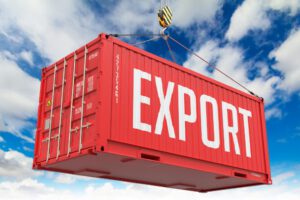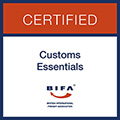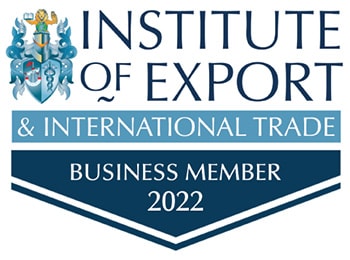Your Essential Guide to Customs Procedures and Their Implications What...

Every participant in international trade must comply with INCOTERMS delivery rules. Therefore, it is worth remembering the risk of accepting shipments on DDP conditions. Usually, this trap affects entrepreneurs who only start their import activity. To avoid unpleasant consequences and follow the maxim “prevention is better than cure”, we have prepared this article, in which we have described in detail the phenomenon of “gray customs” clearance.
However, for total transparency, we will remind you of the basic rules of INCOMTERMS.
A few words about the INCOMTERMS rules
INCOMTREMS (International Commercial Terms) is a set of international rules that precisely define the conditions of sale throughout the world. These rules indicate the division of costs and responsibilities between buyer and seller and reflect the type of transport agreed upon. The International Trade Organization LCC Poland is responsible for their promulgation.
You can find more information about INCOTERMS on our blog.
DDP delivery rules
Most questions and controversies arise when applying DDP terms in practice. DDP – Duty Paid, Delivered, Destination Specific – is a rule that, at first assessment, may seem to be an attractive solution. The seller assumes all formalities related to international sales, including the organisation and cost of loading, transport of goods to the buyer, insurance fees, and even the risk of damage or loss of goods.
Moreover, under the DDP rules, the seller also assumes the obligation to pay customs duties and taxes in the importing country. As a result, the buyer is left only with the unloading of the goods and any liability for damage to them during this time. However, it must be stressed that this peace, security and convenience are, in reality, just the calm before the storm, and the storm is coming.
The “gray customs” trap of INCOTERMS DDP delivery terms
The bait used in the trap is very effective – the seller undertakes to take over all the formalities and pay taxes and customs duties. In reality, third-country companies are not allowed to clear customs in the European Union. This makes it impossible for them to pay VAT and customs duties, and without making these payments, they cannot legally market their goods. As a result, the buyer will not receive any evidence of clearance.
In such circumstances, a so-called “gray customs clearance” occurs, i.e. the buyer receives the goods after the initial payment but does not receive any customs clearance documents. How can this happen?
The “gray customs” process in INCOTERMS DDP – step by step
Chinese companies lead the way in gray customs, so we will use them as an example.
Let’s say you order goods on one of the Chinese B2B platforms. When placing the order, the sellers emphasise that they are happy to ship the goods on DDP terms. Tempted by the vision of receiving already imported goods at the amount he paid, the buyer is easily persuaded by such a proposal. The Chinese exporter then consolidates orders placed by numerous European customers. Once the goods have entered the EU, the seller declares all the goods for collective customs clearance in the Czech Republic, Romania or the Netherlands, giving the wrong customs codes.
The goods are then dispatched by courier companies to their final destination as if they had been legally placed on the market. However, when the consignment is unpacked, it turns out that it contains neither a VAT invoice nor customs clearance documents. The importer in such a situation cannot introduce the goods on the market to sell them legally. The trap set in this way proved to be effective at this point.
What if I receive goods under DDP conditions without clearance?
It is best to collect all the documents proving the transaction and then consult an efficient customs agency – we encourage you to contact us.
With all documentation in hand, we’ll check the import circumstances and restrictions that may apply to your goods – including, in particular, the need to certify that they meet safety and quality standards, confirmed by the CE symbol. If the verification is successful, we will carry out customs clearance, which will allow the goods to be legally released for free circulation, as confirmed by the required documents in our possession. Of course, you must take into account the fact that tax and customs fees will have to be paid in such a situation. Thus, instead of a convenient DDP transaction, you have to reckon with a complicated and expensive crossing.
When will INCOTERMS DDP not expose us to “gray customs”?
Unfortunately, only when the purchase is made by a private person, without any plan to commercialise the goods further. In such situations, “gray customs” clearance will not make much difference because only during random customs control it may turn out that VAT will have to be paid.
Which INCOTERMS terms to opt for?
The latest INCOTERMS 2020 regulations combine as many as 11 rules, thanks to which each entrepreneur will be able to find the one that meets their expectations by adjusting to a specific situation while securing the interests of each party. When deciding to import goods from China, we suggest taking advantage of the opportunities offered by FOB and DAP.
FOB terms are best suited for sea freight. The buyer’s responsibility begins as soon as the ordered goods are on board the ship. In this formula, the seller bears the costs and risks associated with the transport until the goods are loaded onto the vessel. The seller is also responsible for clearing the goods through customs.
If, for whatever reason, you want more support from the seller, you can consider delivery on DAP terms – delivery to place. In this option, the seller bears the transport costs and the risk of delivering the goods to the address indicated. However, any tax and duty charges remain with the buyer.
I do not recommend using INCOTERMS DDP delivery terms. By choosing this option, you are more likely to fall into “gray customs” trap.
It is worth mentioning that you may encounter many traps similar to “gray customs” during international trade. You can, of course, search for the right option for you through trial and error, but you can also use the support of professionals who will show you the right way the first time.
We encourage you to contact us!
A Customs Clearance of Imported Car to the UK ...









